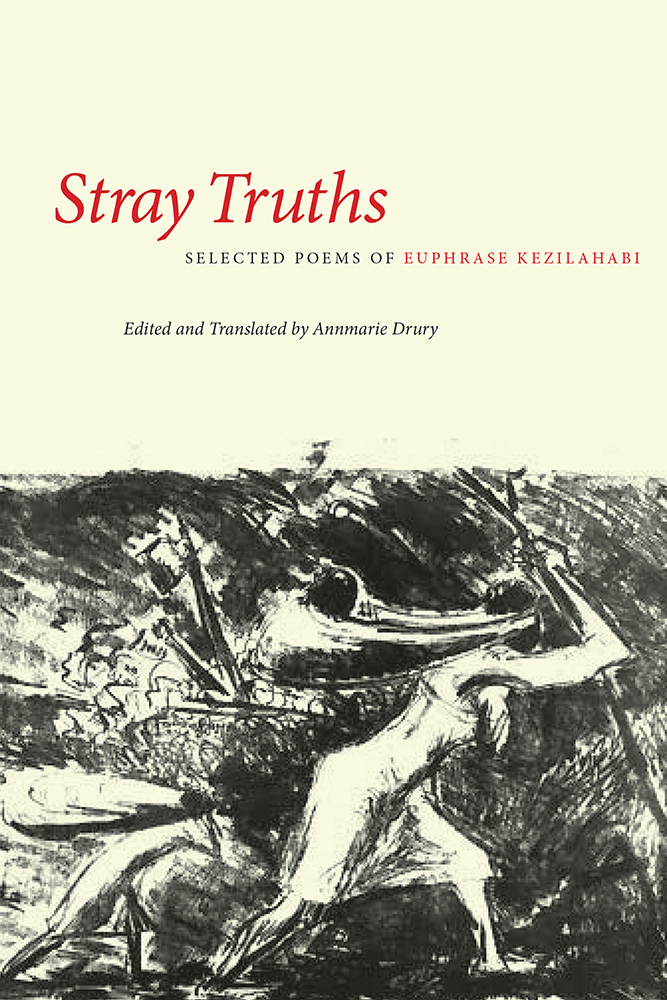
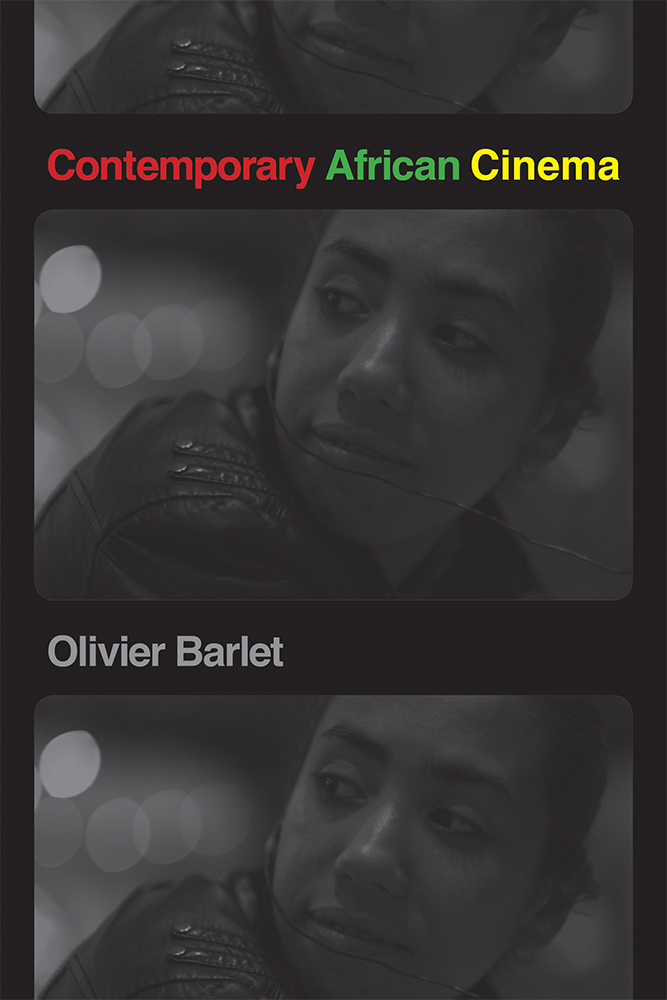

African Humanities and the Arts (AHA)
Series · 15
books · 2000-2020
Books in series

#2
Stray Truths
Selected Poems of Euphrase Kezilahabi
2015
Stray Truths is a stirring introduction to the poetry of Euphrase Kezilahabi, one of Africa’s major living authors, published here for the first time in English. Born in 1944 on Ukerewe Island in Tanzania (then the Territory of Tanganyika), Kezilahabi came of age in the newly independent nation. His poetry confronts the task of postcolonial nation building and its conundrums, and explores personal loss in parallel with nationwide disappointments. Kezilahabi sparked controversy when he published his first poetry collection in 1974, introducing free verse into Swahili. His next two volumes of poetry (published in 1988 and 2008) confirmed his status as a pioneering and modernizing literary force. Stray Truths draws on each of those landmark collections, allowing readers to encounter the myriad forms and themes significant to this poet over a span of more than three decades. Even as these poems jettison the constraints of traditional Swahili forms, their use of metaphor connects them to traditional Swahili poetics, and their representational strategies link them to indigenous African arts more broadly. To date, translations of Swahili poetry have been focused on scholarly interpretations. This literary translation, in contrast, invites a wide audience of readers to appreciate the verbal art of this seminal modernist writer.

#4
Contemporary African Cinema
2016
African and notably sub-Saharan African film’s relative eclipse on the international scene in the early twenty-first century does not transcend the growth within the African genre. This time period has seen African cinema forging a new relationship with the real and implementing new aesthetic strategies, as well as the emergence of a post-colonial popular cinema.
Drawing on more than 1,500 articles, reviews, and interviews written over the past fifteen years, Olivier Barlet identifies the critical questions brought about by the evolution of African cinema. In the process, he offers us a personal and passionate vision, making this book an indispensable sum of thought that challenges preconceived ideas and enriches an approach to cinema as a critical art.

#5
Doomi Golo―The Hidden Notebooks
2003
The first novel to be translated from Wolof to English, Doomi Golo—The Hidden Notebooks is a masterful work that conveys the story of Nguirane Faye and his attempts to communicate with his grandson before he dies. With a narrative structure that beautifully imitates the movements of a musical piece, Diop relates Faye’s trauma of losing his only son, Assane Tall, which is compounded by his grandson Badou’s migration to an unknown destination. While Faye feels certain that his grandson will return one day, he also is convinced that he will no longer be alive by then. Faye spends his days sitting under a mango tree in the courtyard of his home, reminiscing and observing his surroundings. He speaks to Badou through his seven notebooks, six of which are revealed to the reader, while the seventh, the “Book of Secrets,” is highly confidential and reserved for Badou’s eyes only. In the absence of letters from Badou, the notebooks form the only possible means of communication between the two, carrying within them tunes and repetitions that give this novel its unusual shape: loose and meandering on the one hand, coherent and tightly interwoven on the other.

#6
As She Was Discovering Tigony
2000
Dorcas Keurléonan-Moricet is a brilliant white geophysicist posted on assignment in Africa. She falls in love with a young African man, Ségué n’Di, and enters into an extramarital affair with him. In her professional work, she discovers deposits of minerals of inestimable worth. Reading the current age of globalization and neoliberalism as one in which the riches of Africa are again being cynically exploited by multinational companies—including her own—Keurléonan-Moricet’s views and her life gradually change. As the popular resistance against the dictatorial regime in power grows, she comes to play a key role in the unfolding political drama.
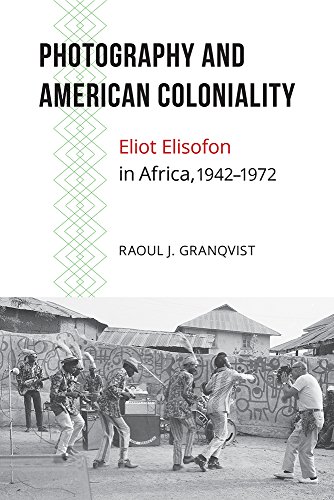
#8
Photography and American Coloniality
Eliot Elisofon in Africa, 1942–1972
2017
This book is the first to question both why and how the colonialist mythologies represented by the work of photographer Eliot Elisofon persist. It documents and discusses a heterogeneous practice of American coloniality of power as it explores Elisofon’s career as war photographer-correspondent and staff photographer for LIFE, filmmaker, author, artist, and collector of “primitive art” and sculpture. It focuses on three Elisofon’s narcissism, voyeurism, and sexism; his involvement in the homogenizing of Western social orders and colonial legacies; and his enthused mission of “sending home” a mass of still-life photographs, annexed African artifacts, and assumed vintage knowledge. The book does not challenge his artistic merit or his fascinating personality; what it does question is his production and imagining of “difference.” As the text travels from World War II to colonialism, postcolonialism, and the Cold War, from Casablanca to Leopoldville (Kinshasa), it proves to be a necessarily strenuous and provocative trip.
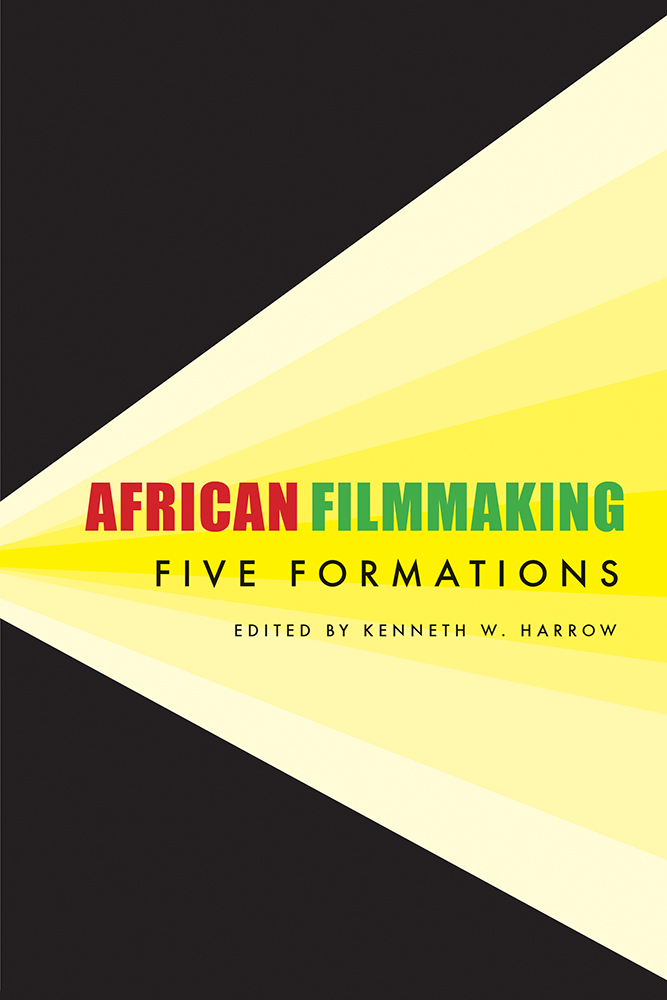
#9
African Filmmaking
Five Formations
2017
This volume attempts to join the disparate worlds of Egyptian, Maghrebian, South African, Francophone, and Anglophone African cinema—that is, five “formations” of African cinema. These five areas are of particular significance—each in its own way. The history of South Africa, heavily marked by apartheid and its struggles, differs considerably from that of Egypt, which early on developed its own “Hollywood on the Nile.” The history of French colonialism impacted the three countries of the Maghreb—Tunisia, Algeria, and Morocco—differently than those in sub-Saharan Africa, where Senegal and Sembène had their own great effect on the Sahelian region. Anglophone Africa, particularly the films of Ghana and Nigeria, has dramatically altered the ways people have perceived African cinema for decades. History, geography, production, distribution, and exhibition are considered alongside film studies concerns about ideology and genre. This volume provides essential information for all those interested in the vital worlds of cinema in Africa since the time of the Lumière brothers.
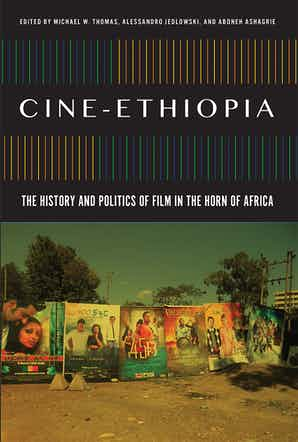
#10
Cine-Ethiopia
The History and Politics of Film in the Horn of Africa
2018
Over the past decade, Ethiopian films have come to dominate the screening schedules of the many cinemas in Ethiopia’s capital city of Addis Ababa, as well as other urban centers. Despite undergoing an unprecedented surge in production and popularity in Ethiopia and in the diaspora, this phenomenon has been broadly overlooked by African film and media scholars and Ethiopianists alike. This collection of essays and interviews on cinema in Ethiopia represents the first work of its kind and establishes a broad foundation for furthering research on this topic. Taking an interdisciplinary approach to the topic and bringing together contributions from both Ethiopian and international scholars, the collection offers new and alternative narratives for the development of screen media in Africa. The book’s relevance reaches far beyond its specific locale of Ethiopia as contributions focus on a broad range of topics—such as commercial and genre films, diaspora filmmaking, and the role of women in the film industry—while simultaneously discussing multiple forms of screen media, from satellite TV to “video films.” Bringing both historical and contemporary moments of cinema in Ethiopia into the critical frame offers alternative considerations for the already radically changing critical paradigm surrounding the understandings of African cinema.
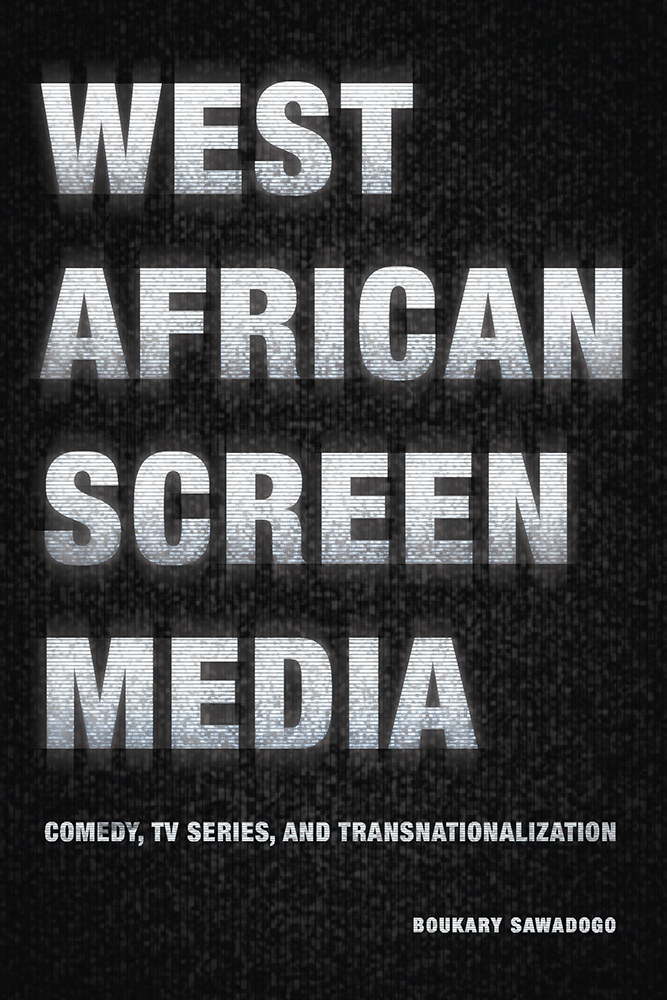
#12
West African Screen Media
Comedy, TV Series, and Transnationalization
2019
The culturally rooted comic traditions of koteba theater and joking kinship have shaped West African comedies through various forms of humor. Débrouillardis e (hustle) has turned the urban scene into a comic scene, a site for individual realization. To highlight the ever-growing production and success of comedies and other popular genres, West African Screen Comedy, TV Series, and Transnationalization explores the distribution and reception of selected productions by emphasizing the public’s strong resonance with local stories and a character-based comedy involving popular comedians. In contrast to art films or “auteur films” that tend to be confined to the festival circuit, comedies and popular genres reach a far wider audience through local distribution networks, satellite TV channels, pirated DVDs, and online distribution platforms. This book engages a discussion of contemporary African media productions as seen outside the usual frameworks of cinéma engagé, the art house, or auteur approaches. While examining production and distribution through the lenses of proximity, appropriation, and transnationalization, this volume invites readers to reconsider the way genre films, as well as other kinds of productions, have been previously evaluated and in doing so addresses the critical neglect of comedy and other popular genres in the scholarship on African cinema.
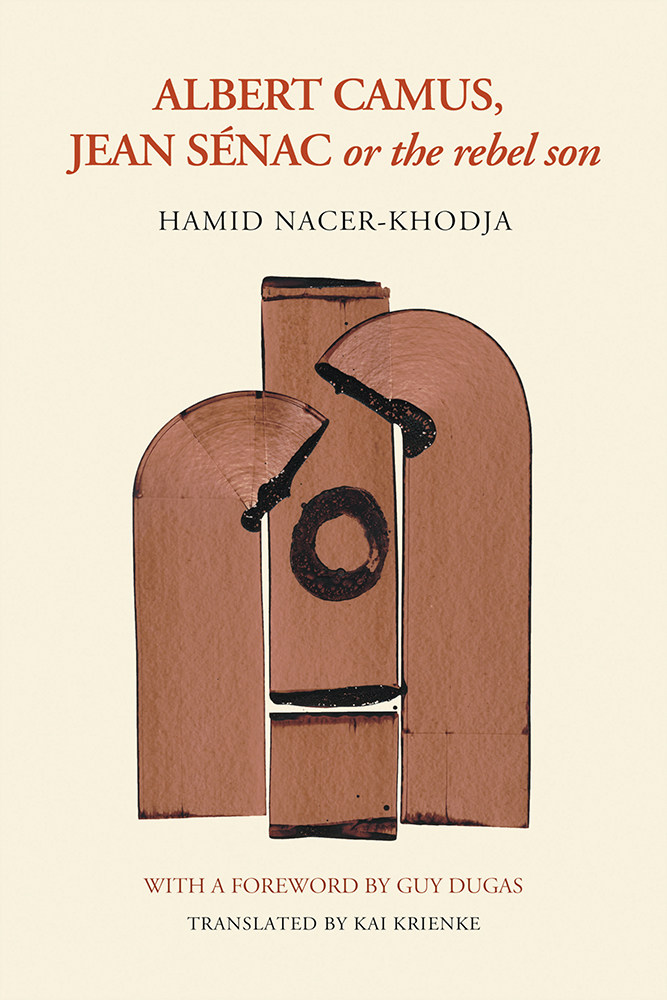
#13
Albert Camus, Jean Sénac, or The Rebel Son
2019
While Albert Camus is an internationally acclaimed figure, Jean Sénac has struggled to gain recognition, even in France and Algeria. The correspondence between the Nobel Prize recipient and the young poet, documented in this illuminating collection, is a testimony to a little-known friendship that lasted for over a decade (1947–1958) and coincided with the escalating conflict between France and Algeria. Their letters shed light on a passionate conflict that opposed two men on two sides of the Algerian War. On one side, Camus distanced himself from an Algerian insurrection that was becoming increasingly violent. On the other, Sénac espoused the armed insurrection of the National Liberation Front and Algeria’s right to independence and freedom. The exchange between Sénac and Camus allows for a deeper and more personal understanding of the Algerian conflict, and of the crucial role of writers, poets, and thinkers in the midst of a fratricidal colonial conflict. The letters translated here are also the intimate dialog between two men who had much in common and who shared a deep love for each other and for their homeland.
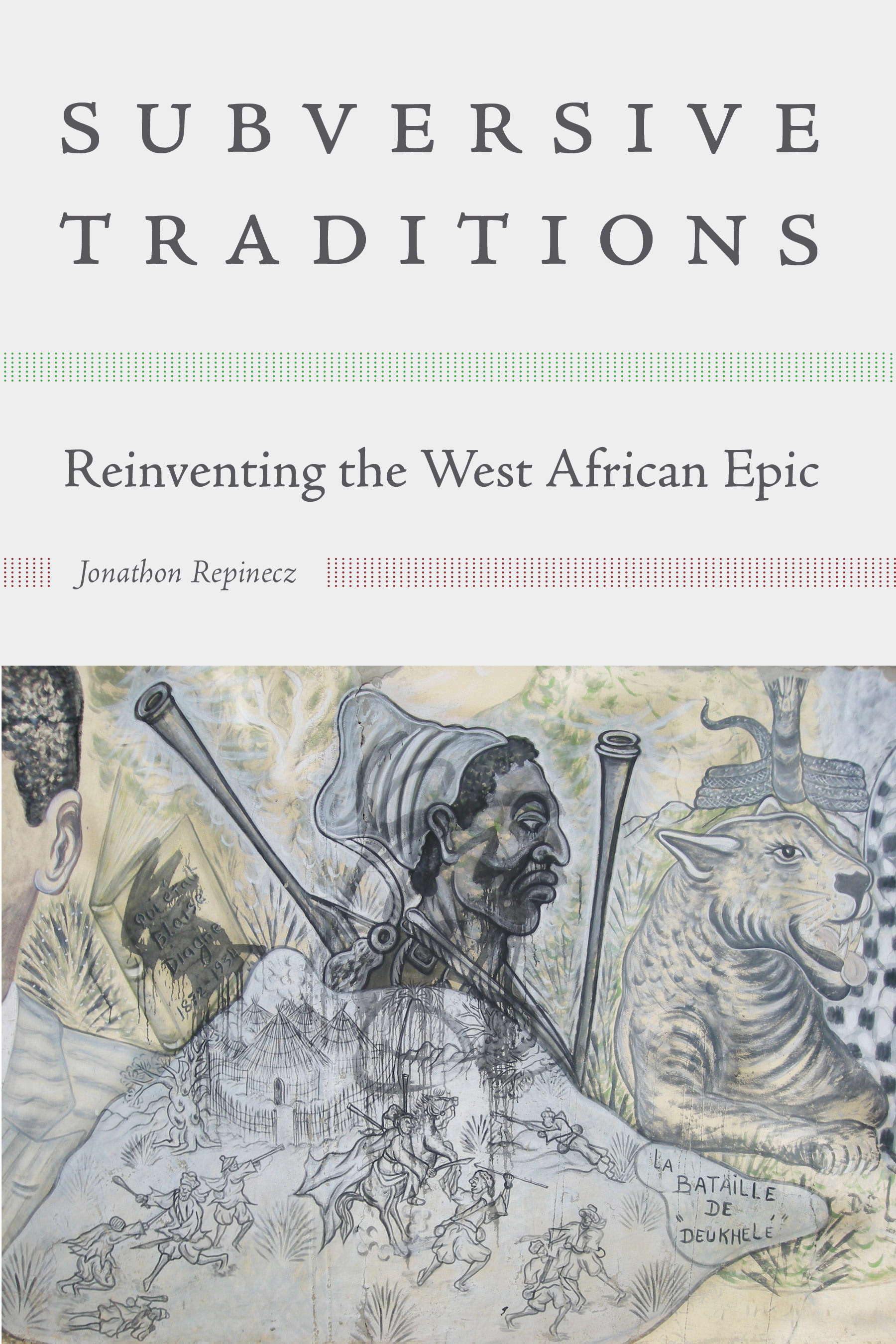
#14
Subversive Traditions
Reinventing the West African Epic
2019
How can traditions be subversive? The kinship between African traditions and novels has been under debate for the better part of a century, but the conversation has stagnated because of a slowness to question the terms on which it is orality vs. writing, tradition vs. modernity, epic vs. novel. These rigid binaries were, in fact, invented by colonialism and cemented by postcolonial identity politics. Thanks to this entrenched paradigm, far too much ink has been poured into the so-called Great Divide between oral and writing societies, and to the long-lamented decline of the ways of old. Given advances in social science and humanities research—studies in folklore, performance, invented traditions, colonial and postcolonial ethnography, history, and pop culture—the moment is right to rewrite this calcified literary history. This book is not another story of subvert ed traditions, but of subvers ive ones. West African epics like Sunjata, Samori, and Lat-Dior offer a space from which to think about, and criticize, the issues of today, just as novels in European languages do. Through readings of documented performances and major writers like Yambo Ouologuem and Amadou Hampâté Bâ of Mali, Ahmadou Kourouma of Ivory Coast, and Aminata Sow Fall and Boubacar Boris Diop of Senegal, this book conducts an entirely new analysis of West African oral epic and its relevance to contemporary world literature.
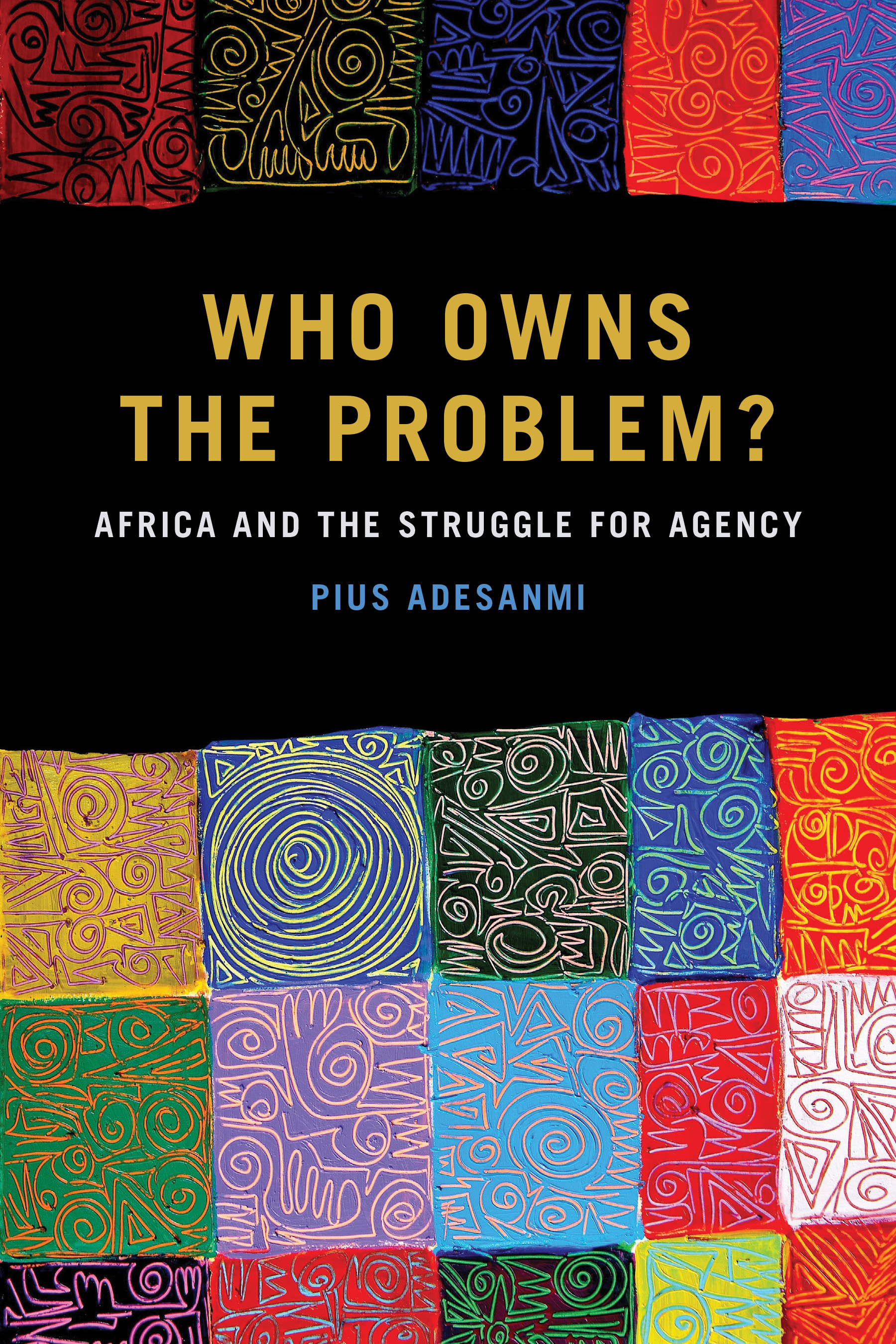
#15
Who Owns the Problem?
Africa and the Struggle for Agency
2020
How may we conceptualize Africa in the driver’s seat of her own destiny in the twenty-first century? How practically may her cultures become the foundation and driving force of her innovation, development, and growth in the age of the global knowledge economy? How may the Africanist disciplines in the humanities, the social sciences, and the natural sciences be revamped to rise up to these challenges through new imaginaries of intersectional reflection? This book assembles lectures given by Pius Adesanmi that address these questions. Adesanmi sought to create an African world of signification in which verbal artistry interpellates performer and audience in a heuristic process of knowledge production. The narrative and delivery of his arguments, the antiphonal call and response, and the aspects of Yoruba oratory and verbal resources all combine with diction and borrowings from Nigerian popular culture to create a distinct African performative mode. This mode becomes a form of resistance, specifically against the pressure to conform to Western ideals of the packaging, standardization, and delivery of knowledge. Together, these short essays preserve the
committed and passionate voice of an African writer lost far too soon. Adesanmi urges his readers to commit themselves to Africa’s cultural agency.
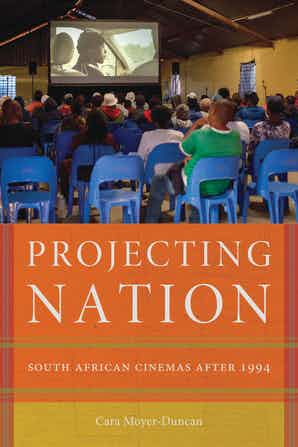
#16
Projecting Nation
South African Cinemas After 1994
2020
In 1994, not long after South Africa made its historic transition to multiracial democracy, the nation’s first black-majority government determined that film had the potential to promote social cohesion, stimulate economic development, and create jobs. In 1999 the new National Film and Video Foundation was charged with fostering a vibrant, socially engaged, and self-sufficient film industry. What are the results of this effort to create a truly national cinematic enterprise? Projecting Nation: South African Cinemas after 1994 answers that question by examining the ways in which national and transnational forces have shaped the representation of race and nation in feature-length narrative fiction films. Offering a systematic analysis of cinematic texts in the context of the South African film industry, author Cara Moyer-Duncan analyzes both well-known works like District 9 (2009) and neglected or understudied films like My Shit Father and My Lotto Ticket (2008) to show how the ways filmmakers produce cinema and the ways diverse audiences experience it—whether they watch major releases in theaters in predominantly white suburban enclaves or straight-to-DVD productions in their own homes—are informed by South Africans’ multiple experiences of nation in a globalizing world.
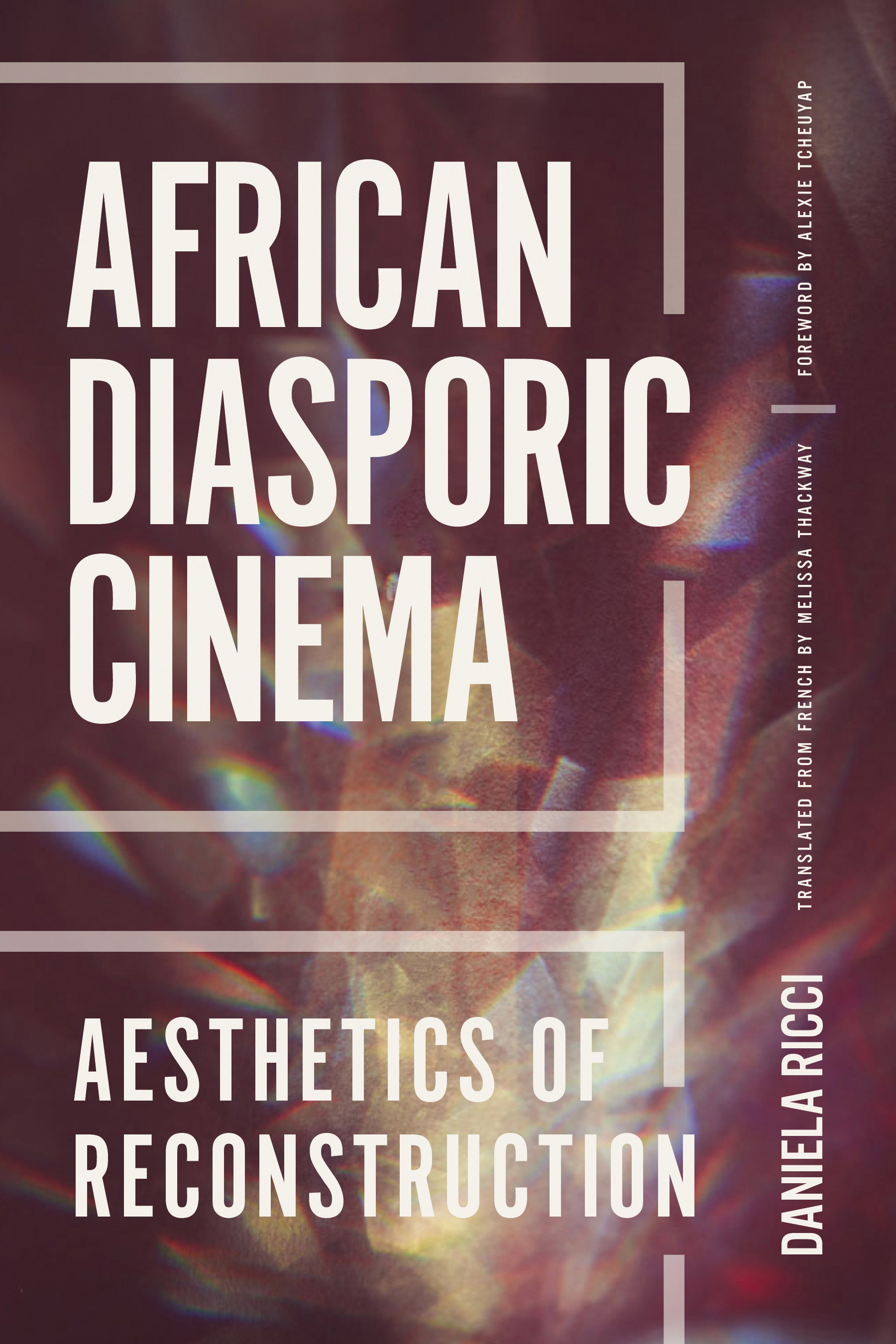
#17
African Diasporic Cinema
Aesthetics of Reconstruction
2020
African Diasporic Aesthetics of Reconstruction analyzes the aesthetic strategies adopted by contemporary African diasporic filmmakers to express the reconstruction of identity. Having left the continent, these filmmakers see Africa as a site of representation and cultural circulation. The diasporic experience displaces the center and forges new syncretic identities. Through migratory movement, people become foreigners, Others—and in this instance, black. The African diasporic condition in the Western world is characterized by the intersection of various being African and bearing the historical memory of the continent; belonging to a black minority in majority-white societies; and finally, having historically been the object of negative, stereotyped representation. As a result, quests for the self and self-reconstruction are frequent themes in the films of the African diaspora, and yet the filmmakers refuse to remain trapped in the confines of an assigned, rigid identity. Reflecting these complex circumstances, this book analyzes the contemporary diaspora through the prism of cultural hybridization and the processes of recomposing fragmented identities, out of which new identities emerge.
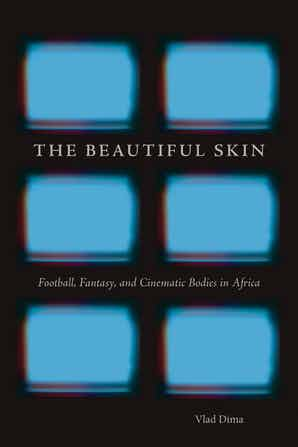
#18
The Beautiful Skin
Football, Fantasy, and Cinematic Bodies in Africa
2020
In this original and provocative study of contemporary African film and literature, Vlad Dima investigates the way that football and cinema express individual and collective fantasies, and highlights where football and cinema converge and diverge with regard to neocolonial fantasies. Shedding new light on both well-known and less familiar films by Mahamat-Saleh Haroun, Abderrahmane Sissako, Jean-Pierre Bekolo, Moussa Touré, Safi Faye, Cheick Doukouré, and Joseph Gaï Ramaka, among others, the study asks just whose fantasy is articulated in football and African cinema. Answering this question requires the exploration of body and identity issues, here through the metaphor of skin: fantasy as a skin; the football jersey as a skin; and ultimately film itself as a skin that has visual, aural, and haptic qualities. The neocolonial body is often depicted as suffering and in the process of being flattened or emptied. So frequently do African cinema and literature replicate this hollowed body, all skin as it were, that it becomes the very type of body that defines neocolonialism. Could the body of film—the depth of both characters and story within the cinematic skin—hold the key to moving into a post-neocolonial era, an era defined by “full” bodies and personal affirmation? This is the question Dima seeks to answer.
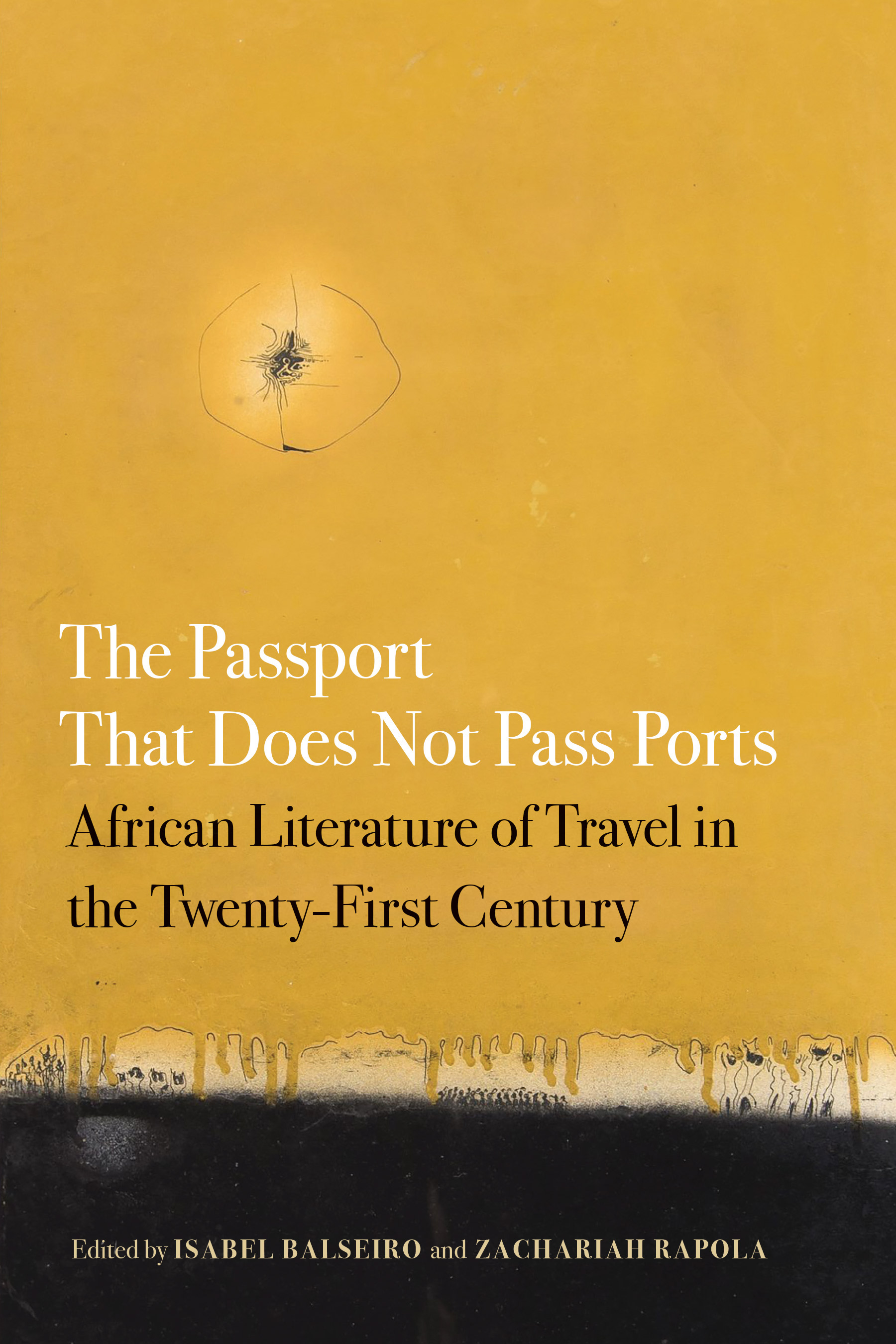
#19
The Passport That Does Not Pass Ports
African Literature of Travel in the Twenty-First Century
2020
These seventeen pieces on travel in Africa by leading African authors take readers to places at once homelike and foreign. Against the tropes of travel writing, this book offers the acuity of vision of particular types of travelers. These are travelers whose mother tongue may find the hint of familiarity across otherwise unintelligible languages and for whom a foreign land isn’t necessarily strange; in it they perceive vestiges of the familiar. For them, the act of traveling extends a canvas on which to depict someone else’s reality—a reality never too distant from their own. What makes these writings coalesce is a reflection about the act of being in motion, about reconfiguring place; a consciousness of how geography redirects the focus of one’s gaze and, in turn, how that altered gaze filters inward. Having absorbed the landscape, inhaled the scents, paid heed to accents, and accepted the condition of being out of place, these travelers reconstitute individual consciousness and join a collective sense of existing beyond borders. Place inhabits this renewed sense of self; literature enables its expression. An inviting introduction to travel writing on Africa, The Passport That Does Not Pass Ports is absorbing reading for travelers and students of literature alike.
Authors
Pius Adesanmi
Author · 2 books
Pius Adesanmi was a Nigerian-born Canadian professor, writer, literary critic, satirist, and columnist.
